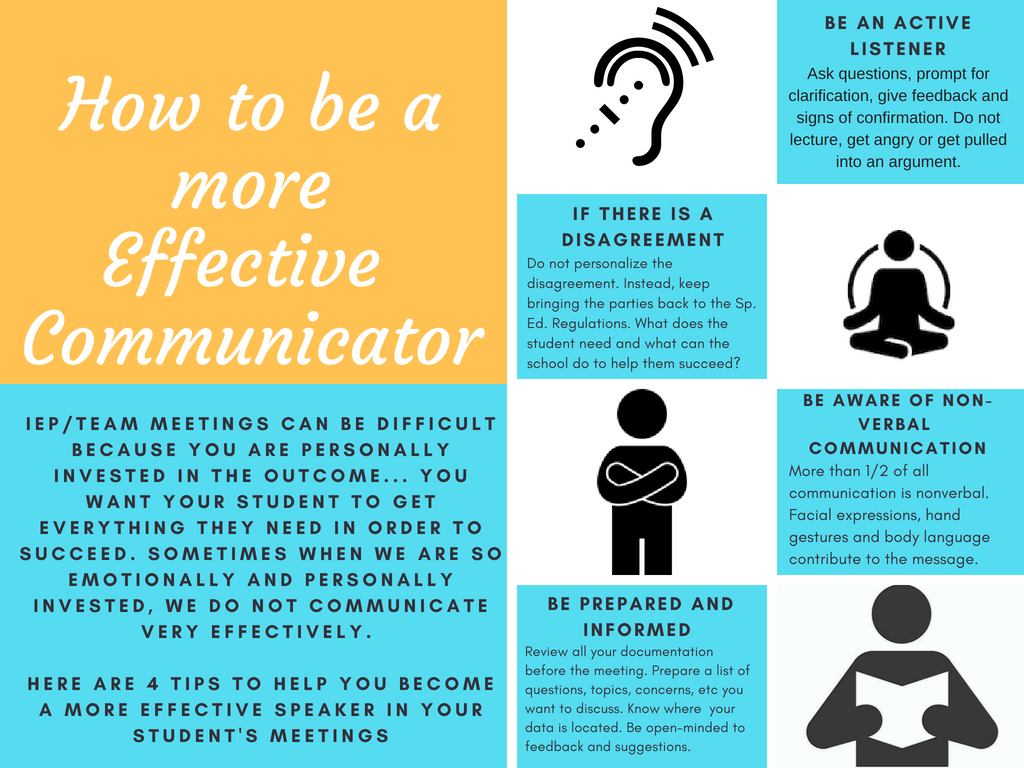School year 2020-2021 is not like any other school year. There are a lot of questions and uncertainty about what will and will not happen this year. DESE has shared many recommendations and suggestions about both general and special education. Here are some of the recommendations in regards to Special Education that will be important for parents to be aware.
Delivery of IEP Services
Students must receive all services documented in their IEPs through in-person instruction, remote instruction, or a combination of both, with a strong emphasis on providing in-person instruction to the greatest extent possible, while abiding by the current necessary health and safety requirements. In particular, DESE urges schools and districts to prioritize in-person instruction for two particular groups of students with disabilities: preschool-aged students, and students with significant and complex needs. Remote learning is often more challenging for these students.
Bottom line what does this mean? Even if the rest of the school has entered into a hybrid or remote model of instruction, schools and districts must make every effort to maintain in-person instruction for students with disabilities, particularly those with complex and significant needs and preschool-aged students.
Promoting Inclusive Services and the Least Restrictive Environment (LRE)
Due to the safety and health protocols that schools need to follow this year, extra consideration should be paid to setting up the classroom/learning space to allow for the physical distancing requirements for students and adults in a classroom but also having enough space to allow for support staff to enter the classrooms throughout the school day to provide services to students with disabilities in the least restrictive environment.
What does that mean?
DESE has provided the example that special education teachers and related service providers (speech language pathologists, occupational therapists, etc.), could provide special education services in the general education setting services remotely from within the school building via video conference, instead of coming into the classroom to provide services. This practice would help to minimize foot traffic in and out of classrooms while also providing access to services that support the inclusion of students with disabilities.
If service providers are not able to provide special education services in the general education setting remotely within the school building via video conference, those educators or related service providers should schedule services in a manner that maintains physical distancing requirements and avoids overlapping with other staff in the classroom or physical setting. This means that some class sizes will need to have less students in it to accommodate the additional educators and staff members who are needed to support students with disabilities throughout the school day.
Parent Engagement
DESE is recommending that schools and districts promote regular two-way communication with families. There is no ‘requirement’ for the frequency, preferred mode of communication and or type of communication and that should be based on the child’s individual needs as well as any language and/or technology access barriers families may face supporting their children with remote learning.
All written and oral communication must be provided in the primary language of the home and in language that is understandable to the general public. This includes translating district-wide and special education notification sent to families, as well as translating special education documents, schedules, and instructions; learning plans, IEPs, Progress Reports and using interpreters at IEP Team meetings.
DESE is recommending that any school personnel who communicates with a family should document the date/content of said communication. So, parents should do the same. This way if there is a disagreement over something both parties can look at their ‘communication log’ and see what was or was not agreed to and move forward to resolution.
Monitoring Student Progress
School districts, collaborative programs, and approved special education day and residential school programs must continue to issue Progress Reports at least as often as report cards or progress reports are provided for students without disabilities.
Educators and service providers must collect data and use this data to monitor the student’s progress to develop Progress Reports. If there are periods of remote learning, educators, service providers, parents, and students should review a student’s IEP and identify the types of data that can be collected from the student, family, and home environment. Staff can re-imagine their roles in a hybrid or remote context, e.g., by using a tracking sheet to collect data from student videos, interviewing parents and students, or using assessments.
Have questions or concerns about your student? Contact us to discuss further:
E.M. Curran Legal LLC
10 Tower Office Park
Suite 314
Woburn, MA 01801
Phone: 781-933-1542
Fax: 781-933-1549
ellen@emcurranlegal.com





























